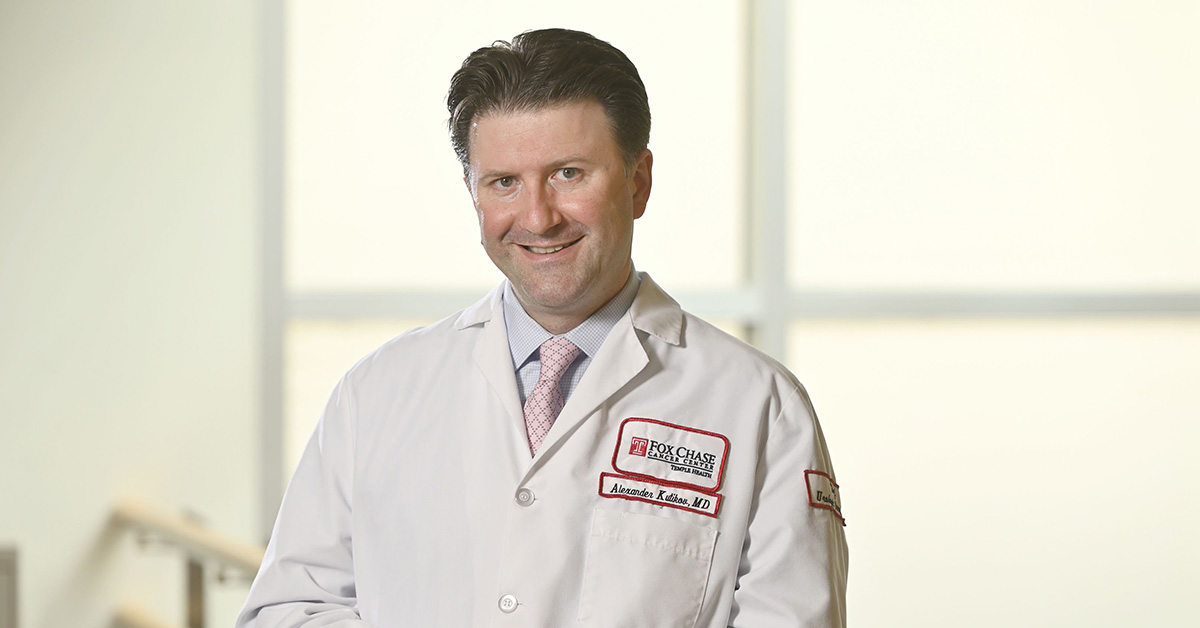
PHILADELPHIA (November 4, 2021)—As more radiographic, histopathologic, and genomic data are gathered and made accessible, it is only a matter of time until artificial intelligence (AI) becomes part of the regular clinical workflow for treating kidney cancer, according to a review article published by researchers at Fox Chase Cancer Center.
“It is anticipated that AI will help physicians more accurately and efficiently diagnose renal masses and ultimately provide better care for patients,” said Matthew Lee, MD, MBA, a resident in the Division of Urology and Urologic Oncology at Fox Chase and first author on the paper.
One of the keys to advancing the ability of AI and machine learning—the ability of computer programs to learn and adapt to new data—to help treat kidney cancer lies in the amount of data available and its quality. According to senior author Alexander Kutikov, MD, FACS, chief of the Division of Urology and Urologic Oncology at Fox Chase, developing the ability to combine data sets across institutions will be integral to unlocking the power of AI.
“This needs a data set of high fidelity, robust data that is in the thousands,” he said. “One institution may not have that, so combining efforts from multiple institutions and having a way to share them is the trick to this.”
Fox Chase is home to one of the largest kidney cancer data sets in the world. Researchers, clinicians, and computer scientists at Fox Chase have spent more than two decades collaborating with other institutions to try and use AI to combine and leverage this data to answer outstanding clinical questions.
One such question explored in the review focused on whether a tumor’s malignancy could be reliably determined from a radiology scan. Up to 30% of tumors that are found via imaging turn out to be benign upon biopsy or resection. The goal, in this case, is to find a way to capitalize on AI’s pattern recognition capabilities so that malignancy can be accurately determined from the scan rather than requiring more invasive procedures.
Another similar question that AI could potentially help answer is whether the consistency and accuracy of tumor grade assessment can be improved. Research has shown that assessments of tumor grades by pathologists may be limited due to inter-observer variance. Furthermore, tumor grading often requires a biopsy, which is an invasive procedure.
Researchers want to leverage the power of pattern recognition in machine learning to find a way to minimize the amount of tissue needed to grade a tumor while making that grading more consistent.
The review authors feel that these capabilities may not be far off, given that AI tools already exist in other healthcare settings. For instance, in some emergency rooms, AI is being used to more quickly review CT scans. If a particularly concerning finding like a brain bleed is uncovered, the human radiologists are alerted to review that scan quickly, where seconds may make the difference between life and death. These tools are still in their infancy, but the authors predict that the power of AI will extend to urology and oncology sooner rather than later.
The review, “Kidney Cancer Management 3.0: Can Artificial Intelligence Make Us Better?,” was published in Current Opinion in Urology.